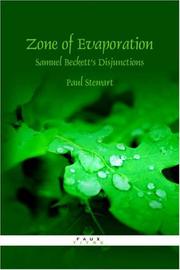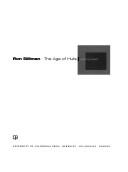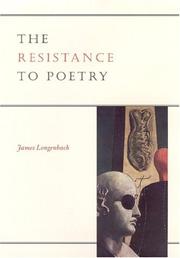| Listing 1 - 7 of 7 |
Sort by
|
Book
ISBN: 0198708963 128358896X 9786613901415 0191654817 9780191654817 9781283588966 9780191743290 0191743291 0199557918 9780199557912 Year: 2012 Publisher: Oxford Oxford university press
Abstract | Keywords | Export | Availability | Bookmark
 Loading...
Loading...Choose an application
- Reference Manager
- EndNote
- RefWorks (Direct export to RefWorks)
Duncan Pritchard offers an account of perceptual knowledge arguing that it is paradigmatically constituted by true belief that enjoys rational support which is reflectively accessible to the agent. This resolves the issue between intermalism and externalism, and poses a radical challenge to contemporary epistemology.
Disjunction (Logic) --- Knowledge, Theory of. --- Knowledge, Theory of

ISBN: 9042020776 9401203415 1429456299 9789042020771 Year: 2006 Volume: 287 Publisher: Amsterdam Rodopi
Abstract | Keywords | Export | Availability | Bookmark
 Loading...
Loading...Choose an application
- Reference Manager
- EndNote
- RefWorks (Direct export to RefWorks)
Zone of Evaporation: Samuel Beckett's Disjunctions is a valuable, and very readable, addition to Beckett studies. From Dream of Fair to Middling Women to How It Is , the book traces the modes of disjunction Beckett employed in his effort to "eff the ineffable". From the comic incongruities of Watt to the ontological gaps of The Unnammable, Zone of Evaporation demonstrates the crucial and consistent role disjunction played in Beckett's novels. The book describes Beckett's divergence from Proustian metaphor and the revelation of the "real" towards an art which exploited the gaps and fissures within language and narrative and, ultimately, to an art which would go on to upset the post-structuralism of Jacques Derrida. For those coming fresh to the works, Zone of Evaporation , written with an eye on the comic instincts of Beckett, provides almost a disjunctive guide to Beckett's early and mid-period novels. To the seasoned Beckett reader, Zone of Evaporation offers an engaging, and challenging, new perspective on Beckett's aesthetic practice.
Beckett, Samuel, --- Criticism and interpretation --- Literature, Modern --- History and criticism. --- Beckett, Samuel --- Pei-kʻo-tʻe, Sa-miao-erh, --- Beḳeṭ, Samuel, --- Beckett, Sam, --- Беккет, Сэмюэль, --- בעקעט, סאמועל --- בקט, סמואל --- בקט, סמואל, --- بكت، ساموئل --- Bikit, Sāmūʼil, --- Criticism and interpretation. --- Beckett, Samuel, - 1906-1989 - Criticism and interpretation --- Disjunction (Logic) --- Technique. --- Disjunctive propositions --- Proposition (Logic) --- In literature. --- Beckett, Samuel, - 1906-1989
Book
ISBN: 9783110473292 3110473291 9783110473308 3110473305 9783110471991 311047199X 311047199X 3110472376 9783110472370 Year: 2017 Publisher: Berlin ;Boston : De Gruyter,
Abstract | Keywords | Export | Availability | Bookmark
 Loading...
Loading...Choose an application
- Reference Manager
- EndNote
- RefWorks (Direct export to RefWorks)
"Medieval thinkers were convinced that they themselves were still citizens of the empire, which had been founded by Augustus." This book is devoted to substantiate this claim of William Heckscher. It does so by tracing Antiquity's afterlife in various genres on the Iberian Peninsula. The book is a manifest for a special transformation and, moreover, continuation of antiquity in the so-called Middle Ages in Spain, going against the commonly held view that only the European Renaissance did justice to and came to the rescue of Antiquity. It describes how the Visigoths preserved classical Antiquity in the 6th and 7th century, how Roman influence manifests itself on the Pórtico de la Gloria of Santiago de Compostela, how the Iberian Peninsula was reluctant to adopt the European Gothic Art around 1200 and how the Catholic Kings went back to forms and ideas of late Antiquity around 1500. In doing so this book offers an alternative to the influential and, so far, widely accepted concept of the reception of Antiquity, which is Erwin Panofky's Principle of disjunction
Architecture, Medieval --- Art, Medieval --- Anti-Periodisierung. --- Antike /Rezeption. --- Kontinuität (der Antike). --- Roman-Romanesque. --- Römisch-Romanisch. --- anti-periodization [of art history]. --- continuation [of antiquity]. --- junction [instead of disjunction]. --- LITERARY CRITICISM / Ancient & Classical. --- Spain. --- Iberian Peninsula --- Hispania (Iberian Peninsula) --- Hispánica, Península --- Iberia (Iberian Peninsula) --- Ibérica, Península --- Península Hispánica --- Península Ibérica --- Antiquities.

ISBN: 1282360140 9786612360145 0520940423 9780520940420 9780520250147 0520250141 9780520250161 0520250168 Year: 2007 Publisher: Berkeley University of California Press
Abstract | Keywords | Export | Availability | Bookmark
 Loading...
Loading...Choose an application
- Reference Manager
- EndNote
- RefWorks (Direct export to RefWorks)
Between the Age of Innocence and the Age of Experience comes The Age of Huts. This book brings together for the first time all of the poems in Ron Silliman's Age of Huts cycle, including Ketjak, Sunset Debris, The Chinese Notebook, and 2197, as well as two key satellite texts, Sitting Up, Standing, Taking Steps, and BART. Each poem offers a radically different approach toward using language to explore the world. One of the founding works of Language Poetry, The Age of Huts is about everything, more or less literally, as each sentence, even each phrase, embarks on its own narrative, linking together to form a large polyphonic investigation of contemporary life. From Ketjak, one of the first poems to employ "the new sentence," to 2197, a serial work that scrambles the vocabulary and grammar of its sentences, The Age of Huts questions everything we have known about poetry in order to see the world anew.
American poetry. --- American literature --- 20th century american poetry. --- 2197. --- 21st century american poetry. --- age of huts cycle. --- american poet. --- american poetry. --- avant garde poetry. --- bart. --- bringing meaning out of work. --- contemporary life. --- disjunction. --- how to see the world. --- ketjak. --- language poetry. --- materiality. --- poems. --- poetics. --- poetry collection. --- poetry. --- polyphonic investigation. --- prose poetry. --- role of the reader. --- sitting up standing taking steps. --- sunset debris. --- the chinese notebook. --- the new sentence. --- united states poetry. --- vocabulary and grammar.
Book
ISBN: 9780520280038 9780520957350 0520957350 0520280032 Year: 2014 Publisher: Oakland, California
Abstract | Keywords | Export | Availability | Bookmark
 Loading...
Loading...Choose an application
- Reference Manager
- EndNote
- RefWorks (Direct export to RefWorks)
Charles C. Ragin's The Comparative Method proposes a synthetic strategy, based on an application of Boolean algebra, that combines the strengths of both qualitative and quantitative sociology. Elegantly accessible and germane to the work of all the social sciences, and now updated with a new introduction, this book will continue to garner interest, debate, and praise.
Qualitative methods in social research --- sociaal-wetenschappelijk onderzoek --- kwalitatief onderzoek --- Social sciences --- Algebra, Boolean. --- Boolean algebra --- Boole's algebra --- Algebraic logic --- Set theory --- Comparative method. --- algebra. --- anthropology. --- boolean algebra. --- branch of algebra. --- case oriented approach. --- causal complexity. --- comparative social science. --- comparative strategies. --- conjunction. --- disjunction. --- heterogeneity. --- logical operations. --- math. --- mathematical logic. --- mathematics research. --- mathematics. --- methodology. --- negation. --- public health research. --- qca. --- qualitative analysis. --- qualitative comparative analysis. --- quantitative analysis. --- science and math. --- social sciences. --- true and false. --- truth values. --- values of variables. --- variable oriented approach.

ISBN: 0226492494 9780226492490 9786612584848 0226492516 1282584847 9780226492513 Year: 2004 Publisher: Chicago (Ill.) University of Chicago press
Abstract | Keywords | Export | Availability | Bookmark
 Loading...
Loading...Choose an application
- Reference Manager
- EndNote
- RefWorks (Direct export to RefWorks)
Poems inspire our trust, argues James Longenbach in this bracing work, because they don't necessarily ask to be trusted. Theirs is the language of self-questioning-metaphors that turn against themselves, syntax that moves one way because it threatens to move another. Poems resist themselves more strenuously than they are resisted by the cultures receiving them. But the resistance to poetry is quite specifically the wonder of poetry. Considering a wide array of poets, from Virgil and Milton to Dickinson and Glück, Longenbach suggests that poems convey knowledge only inasmuch as they refuse to be vehicles for the efficient transmission of knowledge. In fact, this self-resistance is the source of the reader's pleasure: we read poetry not to escape difficulty but to embrace it. An astute writer and critic of poems, Longenbach makes his case through a sustained engagement with the language of poetry. Each chapter brings a fresh perspective to a crucial aspect of poetry (line, syntax, figurative language, voice, disjunction) and shows that the power of poetry depends less on meaning than on the way in which it means-on the temporal process we negotiate in the act of reading or writing a poem. Readers and writers who embrace that process, Longenbach asserts, inevitably recoil from the exaggeration of the cultural power of poetry in full awareness that to inflate a poem's claim on our attention is to weaken it. A graceful and skilled study, The Resistance to Poetry honors poetry by allowing it to be what it is. This book arrives at a critical moment-at a time when many people are trying to mold and market poetry into something it is not.
82-1 --- Poëzie --- American poetry --- Poetry --- History and criticism --- Theory, etc. --- American poetry -- 21st century -- History and criticism -- Theory, etc. --- American poetry - 21st century - History and criticism - Theory, etc. --- Poetry -- History and criticism -- Theory, etc. --- Poetry - History and criticism - Theory, etc. --- English --- American Literature --- Languages & Literatures --- Theory, etc --- 82-1 Poëzie --- Poems --- Verses (Poetry) --- Literature --- American literature --- History and criticism&delete& --- Philosophy --- 82-1 Poëzie. Gedichten. Versvorm --- Poëzie. Gedichten. Versvorm --- 82-1 Poetry. Poems. Verse --- Poetry. Poems. Verse --- poetry, poems, poets, art, artwork, literary studies, literature, english, critical study, trust, language, self-questioning, metaphors, resistance, cultural, culture, virgil, john milton, emily dickinson, transmission of knowledge, difficulty, sustained estrangement, line, syntax, figurative, voice, disjunction, reading, writing, history, historical, theory, story, composed.
Book
Year: 2020 Publisher: Basel, Switzerland MDPI - Multidisciplinary Digital Publishing Institute
Abstract | Keywords | Export | Availability | Bookmark
 Loading...
Loading...Choose an application
- Reference Manager
- EndNote
- RefWorks (Direct export to RefWorks)
The book provides a contemporary view on different aspects of the deductive systems in various types of logics including term logics, propositional logics, logics of refutation, non-Fregean logics, higher order logics and arithmetic.
quine --- logic --- ontology --- multiple conclusion rule --- disjunction property --- metadisjunction --- axiomatizations of arithmetic of natural and integers numbers --- second-order theories --- Peano’s axioms --- Wilkosz’s axioms --- axioms of integer arithmetic modeled on Peano and Wilkosz axioms --- equivalent axiomatizations --- metalogic --- categoricity --- independence --- consistency --- logic of typical and atypical instances (LTA) --- logic of determination of objects (LDO) --- quasi topology structure (QTS) --- concept --- object --- typical object --- atypical object --- lattice --- filter --- ideal --- discussive logics --- the smallest discussive logic --- discussive operators --- seriality --- accessibility relation --- Kotas’ method --- modal logic --- deontic logic --- ontology of situations --- semantics of law --- formal theory of law --- Wittgenstein --- Wolniewicz --- non-Fregean logic --- identity connective --- sentential calculus with identity --- situational semantics --- deduction --- (dual) tableau --- Gentzen system --- deductive refutability --- refutation systems --- hybrid deduction–refutation rules --- derivative hybrid rules --- soundness --- completeness --- natural deduction --- meta-proof theory --- synthetic tableaux --- principle of bivalence --- cut --- first-order theory --- universal axiom --- Peano’s axiomatics of natural numbers --- Leśniewski’s elementary ontology --- Frege’s predication scheme --- Frege’s Zahl-Anzahl distinction --- term logic --- Franz Brentano --- Lewis Carroll --- logic trees --- logic diagrams --- paraconsistent logic --- paraconsistency --- Sette’s calculus --- the law of explosion --- the principle of ex contradictione sequitur quodlibet --- semantic tree --- distribution --- Aristotle’s logic --- syllogistic --- Jan Łukasiewicz --- axiomatic system --- axiomatic refutation --- temporal logic --- intuitionistic logic --- minimal system --- knowledge --- sequent-type calculi --- nonmonotonic logics --- default logic --- rejection systems --- Kripke models --- logics of evidence and truth --- n/a --- Peano's axioms --- Wilkosz's axioms --- Kotas' method --- hybrid deduction-refutation rules --- Peano's axiomatics of natural numbers --- Leśniewski's elementary ontology --- Frege's predication scheme --- Frege's Zahl-Anzahl distinction --- Sette's calculus --- Aristotle's logic
| Listing 1 - 7 of 7 |
Sort by
|

 Search
Search Feedback
Feedback About UniCat
About UniCat  Help
Help News
News